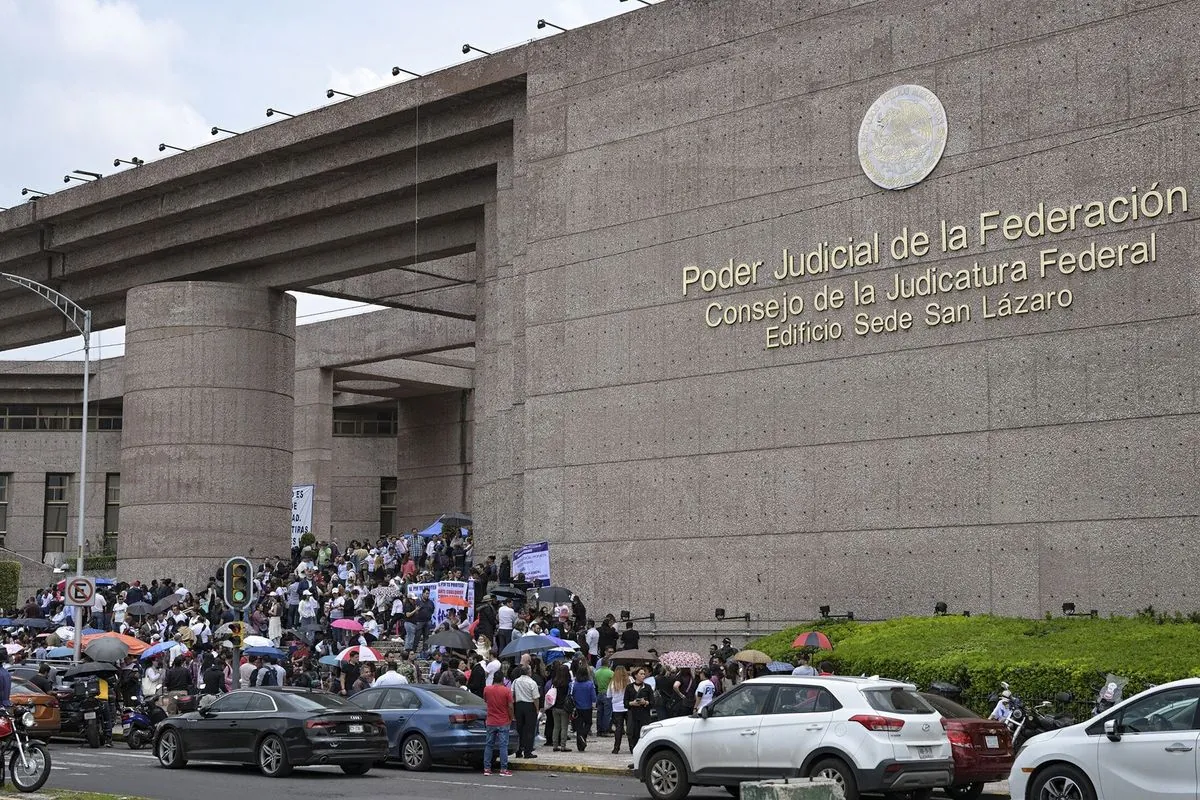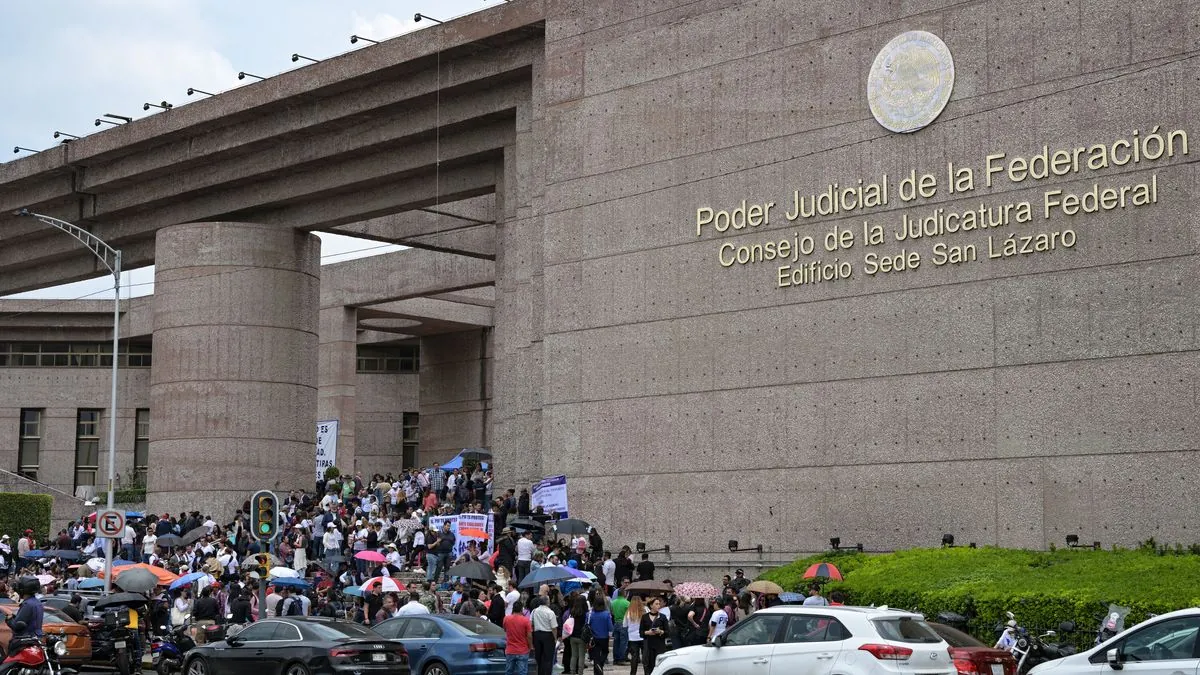Mexican Judicial Reform Sparks Nationwide Protests and Economic Concerns
President López Obrador's proposal to elect judges faces opposition from court employees and financial analysts. The controversial plan has ignited debates about judicial independence and investment stability in Mexico.

In Mexico, a contentious proposal by President Andrés Manuel López Obrador to reform the judicial system has sparked widespread protests and economic concerns. The plan, which includes electing judges through popular vote, has met fierce resistance from various sectors of society.
Federal court employees initiated a strike earlier this week, with judges and magistrates joining on Wednesday. Thousands have gathered outside court buildings, setting up tents and displaying protest signs. The demonstrations have effectively halted most federal court operations, with only urgent cases being processed.

Fernando Rangel Ramírez, a federal judge participating in the strike, expressed concerns about the potential politicization of the judiciary. He emphasized the importance of maintaining an apolitical judicial branch and the need for experienced professionals in these roles.
The National Association of Circuit Magistrates and District Judges has declared that the strike will continue indefinitely until the proposal is blocked. They are calling for a more comprehensive reform that addresses the structural issues weakening the quality of justice in Mexico.
The proposed overhaul has also raised eyebrows in the financial sector. Morgan Stanley downgraded its investment recommendation for Mexico, citing increased risk due to the potential changes in the judicial system. This move highlights the potential economic implications of the reform.
President-elect Claudia Sheinbaum, a political ally of López Obrador, has defended the proposal, stating that it would lead to a better justice system in Mexico. She attempted to assuage investor concerns, claiming that their investments would be better protected under the new system.
"Investors shouldn't be worried. On the contrary, we will have a better justice system in Mexico."
The controversy surrounding this proposal is rooted in Mexico's complex legal history. The Mexican Supreme Court, established in 1824, operates within a civil law system influenced by Spanish civil law and pre-Columbian juridical customs. The current structure of the judiciary was established by the Mexican Constitution of 1917, with federal judges traditionally being appointed rather than elected.
Critics of the proposal argue that electing judges could compromise judicial independence and the system of checks and balances. They fear that politically biased judges might be placed on the bench, potentially undermining the integrity of the judicial process.
It's worth noting that Mexico's judicial system has undergone several reforms since the 1990s, aimed at addressing issues of corruption and inefficiency. The current selection process for judges involves nominations by the executive branch and approval by the legislature, overseen by the Mexican Federal Judiciary Council.
As the debate continues, the outcome of this proposed reform could have far-reaching implications for Mexico's legal system, its economy, and its standing in the international community. The coming weeks will likely see further discussions and negotiations as the government, judiciary, and civil society grapple with the future of Mexico's justice system.


































